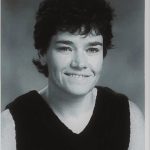Funded by the Kay Yow Cancer Fund
The overall goal of the University of Texas MD Anderson Cancer Center Ovarian SPORE is to prolong survival and to reduce the number of deaths from ovarian cancer through innovative research in the detection and treatment of ovarian cancer. The investigators funded by this grant have worked together to conduct five separate research projects. Project 1 has evaluated new biomarkers to create a blood test for early detection of ovarian cancer. When ovarian cancer is detected in stage I, up to 90% of women can be cured; however, only 20-25% of women are currently diagnosed at this stage. Detection of early stage disease in a larger number of women could improve the cure rate by 15–30%. Project 2 has tested drugs that can overcome the resistance that is developed to current therapy which targets the blood vessels that grow into and bring nutrients to ovarian cancer cells. Increasing the ability of drugs to eradicate the tumor blood supply will help kill the cancer cells. Project 3 has tested drugs for personalized therapy for low- grade cancer. Low-grade ovarian serous carcinoma is more common in younger women and it is a unique disease that is highly resistant to standard chemotherapy and difficult to manage. The goal of this project is to improve understanding of how low-grade ovarian cancer develops and progresses in order to identify new drug therapies that limit its growth. Project 4 has studied drugs for personalization of treatment for high grade ovarian cancers. Not all ovarian cancers will respond the same way or to the same extent to the chemotherapy drugs currently available or to the targeted therapies that are becoming the standard of care. This is due to molecular variation that exists from person to person and from cancer cell to cancer cell in the same patient. Finally, Project 5 has created modified cells that can be used to deliver a therapeutic agent directly to the ovarian tumors. Bone marrow-derived mesenchymal stem cells (MSC) are collected from an individual and modified in a test tube using recombinant DNA techniques. The modified cells are then injected into the patient and will move through the blood stream and ultimately integrate into the ovarian tumors. Once engrafted in the tumor, the modified MSC will produce a potent anti-tumor molecule which acts to reduce cancer cell growth.







